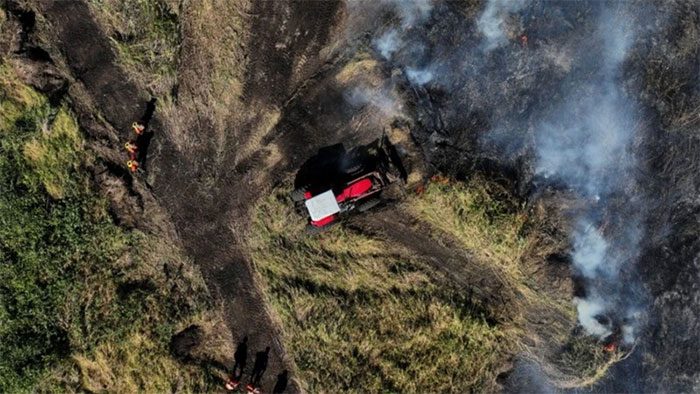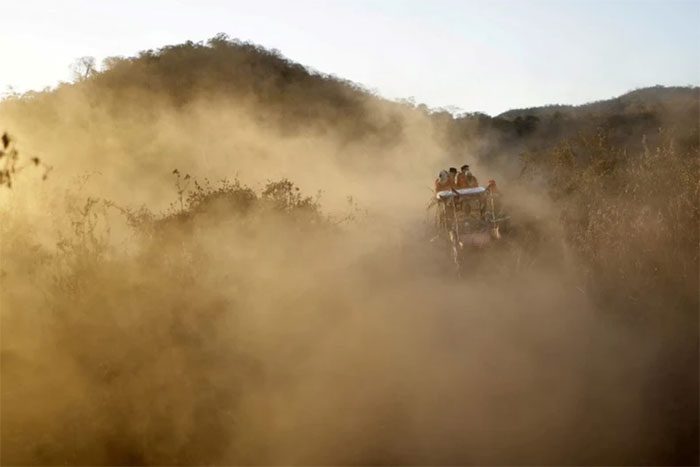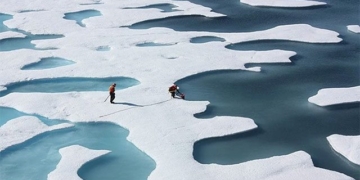A new study published by World Weather Attribution, an organization that assesses the role of climate change in extreme weather patterns globally, states that climate change has put the world’s largest wetland, the Pantanal in Brazil, at risk of devastating wildfires.

Firefighters work to extinguish the raging fire in Pantanal, the world’s largest wetland, in June 2024. (Photo: REUTERS)
According to the study, wildfires in the Pantanal typically ignite starting in July each year, peaking in the following two months. However, this year, fires have already emerged as early as late May, with an unprecedented severity.
As of July 2024, over 3,500 wildfires have been recorded in the Pantanal, representing an increase of more than 2,000% compared to the same period last year. In June alone, 2,639 fires were detected, which is six times higher than the previous record.
Data from the Federal University of Rio de Janeiro (UFRJ) also indicates that approximately 10% of the Pantanal area has been burned. This region is even larger than the state of Connecticut in the United States. This level of wildfire is the highest ever recorded for this timeframe.
Scientists from World Weather Attribution observe that current climate change phenomena will increase the frequency of drought and heat conditions by 4 to 5 times the normal rates; thus, exacerbating the wildfire risks in Pantanal in the coming months.

Approximately 10% of Pantanal has been burned. (Photo: REUTERS).
The Pantanal spans approximately 250,000 square kilometers, with over 170,000 square kilometers (about 60%) located in Brazil across the states of Mato Grosso do Sul and Mato Grosso, 20% in northern Paraguay, and 18% in Bolivia. This largest wetland on the planet has been recognized as a World Heritage Site by the United Nations Educational, Scientific and Cultural Organization (UNESCO) and is considered one of the richest ecosystems in the world in terms of biodiversity, hosting around 600 bird species, 124 mammal species, 80 reptile species, and 60 amphibian species. |




















































